From the Chicago Reader (January 26, 2007). — J.R.
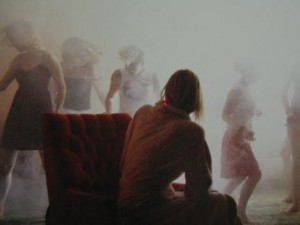
David Lynch’s first digital video is his best and most experimental feature since Eraserhead (1978). Shot piecemeal over at least a year and without a script, this 179-minute meditation builds on Lynch’s Mulholland Drive (2001) as a sinister and critical portrait of Hollywood. But it resists any narrative paraphrase, with several overlapping premises rather than a single consecutive plot. Laura Dern plays an actress who’s been cast in a new feature, as well as a battered housewife and a hooker; there are also Polish characters and a sitcom with giant rabbits in human clothes. The visual qualities include impressionistic soft-focus colors, expressionistic lighting, and disquietingly huge close-ups. With Justin Theroux, Jeremy Irons, Karolina Gruszka, Harry Dean Stanton, and Grace Zabriskie. In English and subtitled Polish. R. (JR)
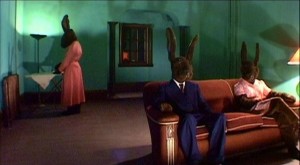
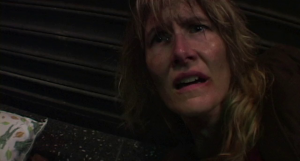 Read more
Read more
This essay, reprinted in my 2010 book Goodbye Cinema, Hello Cinephilia, appeared in French translation in Le Mythe du Director’s cut (Paris: Presses Sorbonne Nouvelle, 2008), a collection coedited by Michel Marie and François Thomas and adapted from a lecture I gave at a conference about “directors’ cuts” that was held at the Toulouse Cinémathèque in early 2007. I should add that this was written prior to the release of Blade Runner: The Final Cut, which I subsequently reviewed in the November 1, 2007 issue of the Chicago Reader. — J.R.
by Jonathan Rosenbaum
Perhaps the biggest source of confusion regarding the term “director’s cut” is the fact that it can serve both as a legal concept and as an advertising slogan, and both as an aesthetic theory and as an actual aesthetic praxis. In some instances, it can serve all of these functions, but I would argue that most of these instances occur in France —-the only country, to my knowledge, where the legal concept is backed up by an actual law pertaining to les droits d’auteur. And even here, I’ve been told that this law is not always and invariably a guarantee of artistic freedom. A few years ago, while he was working on Le temps retrouvé, Raúl Ruiz told me in effect that in some cases it could function as a law that took on the characteristics of a deceitful advertising slogan—-which is to say, that it doesn’t always function as an enforceable law, especially when larger sums of money are involved and various kinds of coercion are available to producers who want to impose their will on certain creative decisions made by filmmakers. Read more
From the Chicago Reader (November 22, 2007). — J.R.
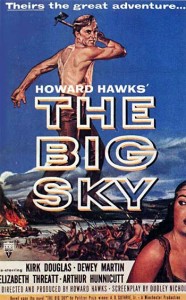
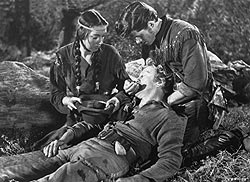
Though this sublime 1952 black-and-white masterpiece by Howard Hawks is usually accorded a low place in the Hawks canon, it’s a particular favorite of mine — mysterious, beautiful, and even utopian in some of its sexual and cultural aspects. Adapted (apparently rather loosely) by Dudley Nichols from part of A.B. Guthrie’s novel, this adventure stars Kirk Douglas and Dewey Martin as Kentucky drifters who join an epic trek up the Missouri River, along with the latter’s uncle (Arthur Hunnicutt), an Indian princess (Elizabeth Threatt), and a good many Frenchmen. The poetic feeling for the wilderness is matched by the camaraderie, yet there’s also a tragic undertone to this odyssey that seems quintessentially Hawksian — a sense of a small human oasis in the center of a vast metaphysical void. 140 min. (JR)
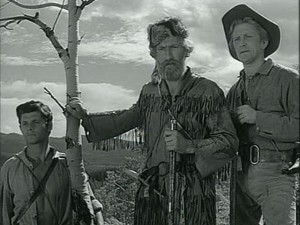 Read more
Read more






